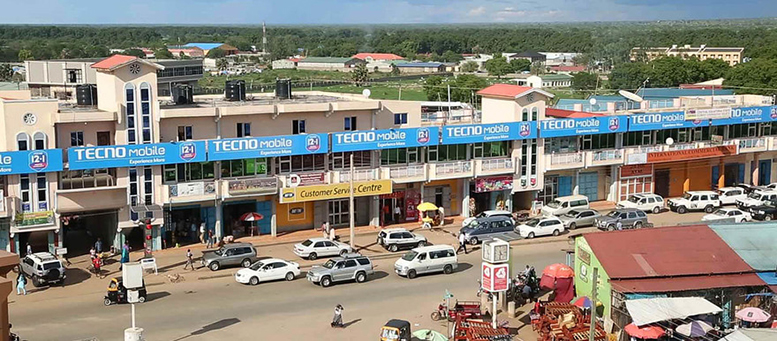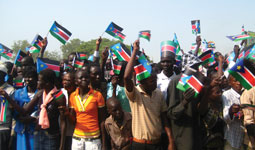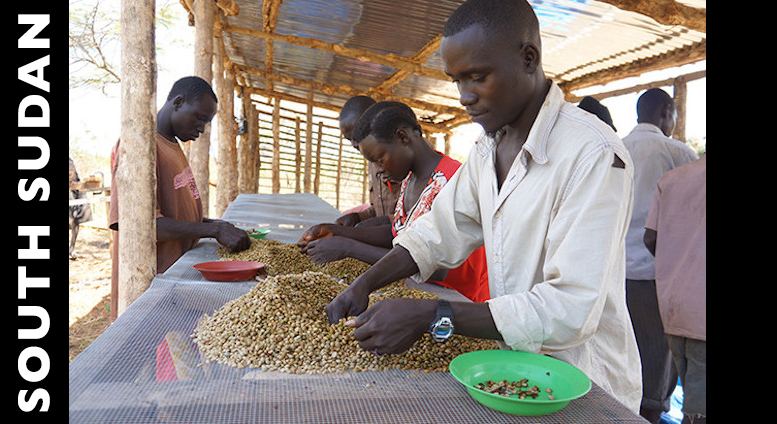Pride Lubricants
Manufacturer of lubricants, oils, greases for cars, motorcycles, marine and industrtial applicatiions. Seeking buyers in Africa...


Smart investors, savvy analysts and individuals familiar with emerging markets know that South Sudan
has the potential to become Africa’s next best bet. So says David Raad and Associates (DR&A) who helps
businesses explore and undertake opportunities in southern Sudan.
With few industries outside the oil sector and almost non-existent infrastructure, many international and regional investors are eyeing business opportunities in a newly independent South Sudan. Cement manufacturers are hoping for an increase in demand from the south as the region develops its infrastructure.
 company is also very interested in
the southern Sudan market but that any investment is dependent on the outcome of the referendum. Recent
reports suggest that Kenya Commercial Bank (KCB) expects to open new branches in South Sudan in the
coming years. One of the few major foreign investments in South Sudan over recent years has been
SABMiller’s Southern Sudan Beverages Ltd (SSBL) brewery in Juba.
company is also very interested in
the southern Sudan market but that any investment is dependent on the outcome of the referendum. Recent
reports suggest that Kenya Commercial Bank (KCB) expects to open new branches in South Sudan in the
coming years. One of the few major foreign investments in South Sudan over recent years has been
SABMiller’s Southern Sudan Beverages Ltd (SSBL) brewery in Juba.Many business people are, however, adopting a wait-and-see approach. Uganda’s Daily Monitor reports that many Ugandan traders will not return to South Sudan until they can be assured of their safety. According to the newspaper, Ugandan traders in South Sudan have reported cases of harassment and human rights abuse by security officers and influential people in the region.

The economy of South Sudan is one of the most oil dependent economies in the world, despite being endowed with bountiful natural resources. It has a very fertile agricultural land and vast number of livestock. The livestock include over 60 million cattle, sheep and goats. Political instability, poor governance, and corruption continue to hinder development in the world's youngest country.
South Sudan exports timber to the international market. Some of the states with the best known teak and natural trees for timber are Western Equatoria and Central Equatoria. There are teak plantations located at Kegulu; the other, oldest planted forest reserves are Kawale, Lijo, Loka West, and Nuni. Western Equatoria timber resources include mvuba trees at Zamoi.
After a decade of independence, South Sudan’s economy grew, with gross domestic product (GDP) estimated at 9.5% in FY2019/20. However, due to falling oil prices in the global market, and concurrent shocks to GDP growth in FY2020/21 is projected to contract by -4.1%. The COVID-19 pandemic and climatic conditions are also exacerbating poverty, access to services and general living standards for many South Sudanese.
Prior to independence, South Sudan produced 85% of Sudanese oil output.[13] The oil revenues according to the Comprehensive Peace Agreement (CPA), were to be split equally for the duration of the agreement period. Since South Sudan relies on pipelines, refineries, and port facilities in Red Sea state in North Sudan, the agreement stated that the government in Khartoum would receive 50% share of all oil revenues.[14] Oil revenues constitute more than 98% of the government of South Sudan's budget according to the southern government's Ministry of Finance and Economic Planning and this has amounted to more than $8 billion in revenue since the signing of the peace agreement.
However, the signing of the most recent truce in 2018, and subsequent formation of the Revitalized Transitional Government of National Unity (R-TGoNU) in 2020, had provided hope for recovery and peace building. Nonetheless, South Sudan still faces the risk of reversing these gains, with increased incidents of concurrent shocks and the intensity in subnational violence that threatens stability.
“Looking ahead, we expect the South Sudanese economy to recover provided that the authorities adhere to agreed upon reform priorities,” said Joseph Mawejje, World Bank Economist. “Developments in the oil sector will continue to play a critical role, but favorable climatic conditions and peace and security are also essential elements. Recent advances in the development of a COVID-19 vaccine have raised hopes that the global economy could recover faster, which should support a sustained uptick in oil prices, more foreign direct investment, and remittances for South Sudan.”

South Sudan’s oil industry is steadily recovering as a power-sharing government that ended five years of civil war remains in place, with production increasing to more than 170,000 barrels a day. That’s still significantly down from levels before civil war broke out in 2013.
In recent years, a significant amount of foreign-based oil drilling has begun in South Sudan, raising the land's geopolitical profile. Oil and other mineral resources can be found throughout South Sudan, but the area around Bentiu is commonly known as being especially rich in oil, while Jonglei, Warrap, and Lakes have potential reserves.
During the autonomy years from 2005 to 2011, Khartoum partitioned much of Sudan into blocks, with about 85% of the oil coming from the South. Blocks 1, 2, and 4 are controlled by the largest overseas consortium, the Greater Nile Petroleum Operating Company (GNPOC). GNPOC is composed of the following players: China National Petroleum Corporation (CNPC, People's Republic of China), with a 40% stake; Petronas (Malaysia), with 30%; Oil and Natural Gas Corporation (India), with 25%; and Sudapet of the central Sudan government with 5%.
The other producing blocks in the South are blocks 3 and 7 in eastern Upper Nile state. These blocks are controlled by Petrodar which is 41% owned by CNPC, 40% by Petronas, 8% by Sudapet, 6% by Sinopec Corp and 5% by Al Thani.[15]
The country has also secured a $174 million loan from the International Monetary Fund to help finance its budget and stabilize the currency.
Previous Next
Manufacturer of lubricants, oils, greases for cars, motorcycles, marine and industrtial applicatiions. Seeking buyers in Africa...
Importers, distributors and suppliers to Africa of automotive radiators, exhaust systems and flexible pipes. Having established itself in the UAE market...
Infinity Tyres are gaining popularity in Africa. The company is seeking agents and distrubutors in new markets...
Supplier of kitchen equipment for fast food chains, restaurants five-star hotels, bakeries. Seeking business partners and importers...
Manufacturer of lubricants, oils, greases for cars, motorcycles, marine and industrtial applicatiions. Seeking buyers in Africa...
Importers, distributors and suppliers to Africa of automotive radiators, exhaust systems and flexible pipes. Having established itself in the UAE market...
Infinity Tyres are gaining popularity in Africa. The company is seeking agents and distrubutors in new markets...
Supplier of kitchen equipment for fast food chains, restaurants five-star hotels, bakeries. Seeking business partners and importers...
Manufacturer of lubricants, oils, greases for cars, motorcycles, marine and industrtial applicatiions. Seeking buyers in Africa...
Importers, distributors and suppliers to Africa of automotive radiators, exhaust systems and flexible pipes. Having established itself in the UAE market...
Infinity Tyres are gaining popularity in Africa. The company is seeking agents and distrubutors in new markets...
Supplier of kitchen equipment for fast food chains, restaurants five-star hotels, bakeries. Seeking business partners and importers...

